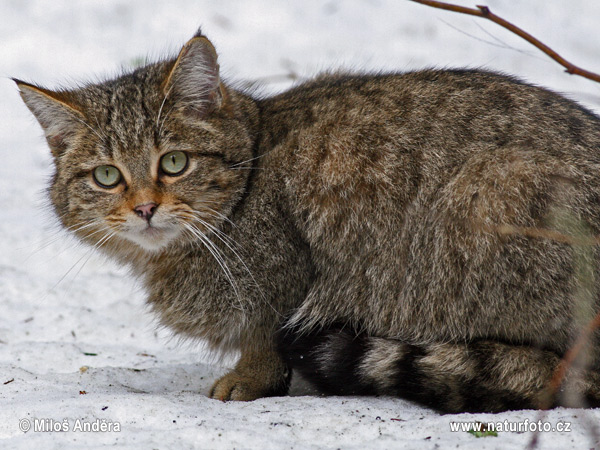The scientific article “the Near
Eastern Origin of Cat Domestication” by Driscoll et al examines the
relationships between the subspecies of Felis
silvestris, commonly known as wildcats, including the domesticated cat.
This article
describes many wildcat subspecies, including F.s silvestris from Europe, F.
s lybica from Africa, F.s ornata from
the Middle East and central Asia, and debatably F.s bieti, the Chinese sand cat. The authors of this paper created
a phylogenetic tree of these subspecies by examining mitochondrial DNA from
over 900 cats in Europe, Africa, and Asia.
The
collected data included DNA from feral domesticated cats, common domesticated
cats, and domesticated cats of fancy breeds. The authors of this article
quickly determined without much surprise that the DNA of all domesticated cats
are extremely similar and therefore placed them in the same monophyletic group.
 |
| Figure 1: F. s Silvestris (European wildcat) |
The
phylogenetic tree did include some surprising results. For many years, it has
been believed that Felis Silvestris originated
from Africa and spread upwards through Europe and then Asia. This data was
based on morphological and fossil evidence and listed F. s lybica as the oldest wildcat subspecies. The molecular analyst
performed by Driscoll et al reveled that Felis
silvestris actually originated from Europe, with F.s silvestris being the oldest wildcat subspecies. From Europe,
wildcats moved into Africa and then Asia.
| Figure 2: F. s catus (Domesticated cat) |
The
newest subspecies of wildcat is F.s catus,
commonly known as the domesticated cat. F.s
catus was first observed to have an association with humans 9,500 years ago
and was domesticated in the Middle East. Domesticated cats are now the most
numerous cat species in the world and also the world’s most popular pet.
| Figure 3: Phylogenetic tree created by Driscoll et at for Felis Selvestris |
Works Cited
Driscoll, C, Menotti-Raymond, M,
Roca, A, Karsten, H, Johnson, W, Geffen, E, Delibes, M, Pontier, D, Kitchener,
A, Yamaguchi, N, O’Brien, S, and Macdonald, D, 2007,“the Near Eastern Origin of
Cat Domestication, Science, Vol. 317,
No. 5837, pg 519-523.
Interesting post. Do you know where the African black-footed cat, Felis nigripes would fit into this story? I’m also intrigued as to whether African wild cat is part of the Felis sylvestris group. Mitochondrial DNA looks at the maternal lineage, so do you think the results might have varied a bit if the paternal lineage was studied?
ReplyDelete